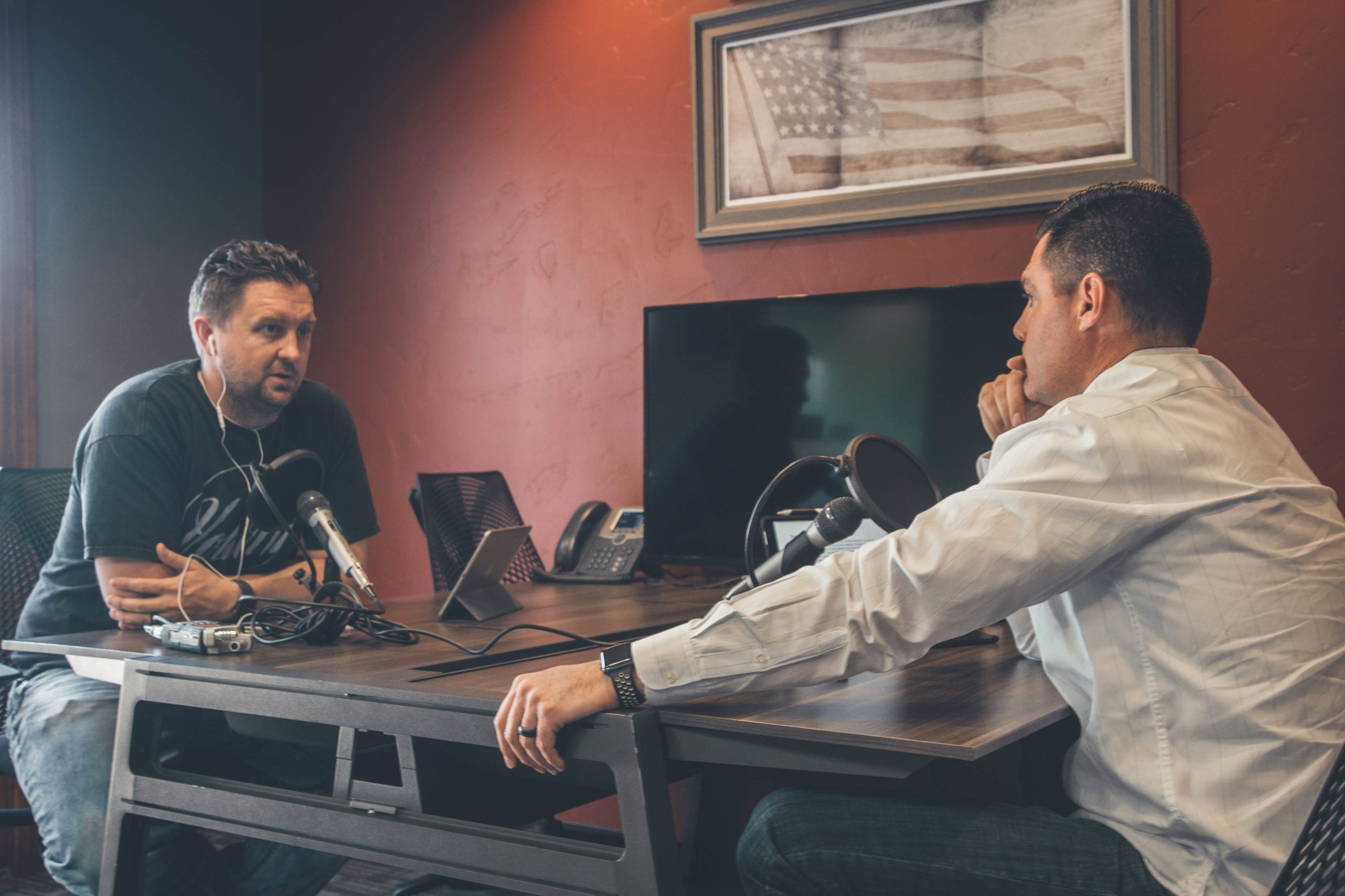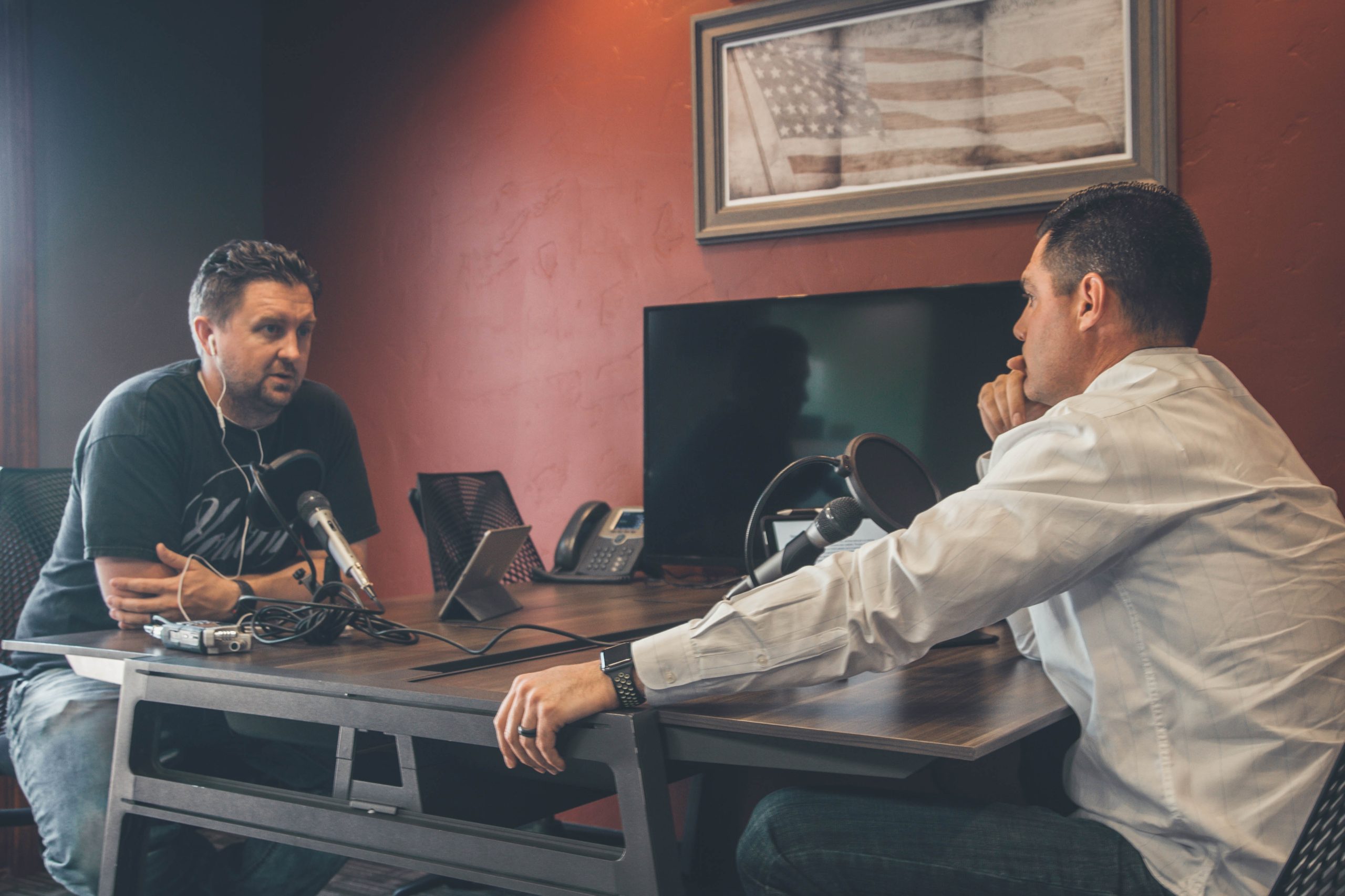Imagine you have just been invited to a podcast interview, and your heart is racing with a mixture of excitement and nervousness. You wonder, how do you handle an interview? In this article, we will explore some key strategies and tips to help you navigate the interview process with confidence and ease. From understanding the power of your voice to learning how to prepare and respond to interview questions, we’ve got you covered. So, get ready to step behind the microphone and shine in your next podcast interview.
Understanding the Interview Format
Types of Interviews
When it comes to interviews, there are several different formats that employers may use to assess your suitability for a position. Understanding these formats can help you better prepare and perform confidently during your interview. The most common types of interviews include:
-
Traditional Interviews – These are one-on-one interviews where you meet with a single interviewer who asks you a series of questions. Traditional interviews typically focus on assessing your skills, qualifications, and fit for the role.
-
Panel Interviews – In panel interviews, you are interviewed by a group of people, usually consisting of multiple interviewers from different departments or levels within the organization. Panel interviews allow for a broader perspective on your suitability for the position.
-
Behavioral Interviews – Behavioral interviews focus on past behavior as an indicator of future performance. Interviewers will ask you questions about specific situations or scenarios you have encountered in the past and how you handled them. This format helps employers assess your problem-solving skills, adaptability, and decision-making abilities.
-
Telephone and Video Interviews – With the increasing prevalence of remote work, telephone and video interviews have become more common. These interviews are typically conducted before in-person interviews and serve as an initial screening process. It’s important to prepare for these interviews just as you would for in-person interviews.
How to Prepare for Different Formats
Preparing for different interview formats requires a tailored approach. Here are some tips to help you prepare effectively:
-
Research the Company – Regardless of the interview format, it’s crucial to have a good understanding of the company’s values, goals, and culture. This knowledge will allow you to align your responses and demonstrate your interest in the organization.
-
Practice Common Interview Questions – While the specific questions may vary depending on the format, there are common interview questions that you can anticipate. Take the time to practice your responses to ensure you are well-prepared.
-
Review Your Resume – Familiarize yourself with your own resume and be ready to discuss your experiences, accomplishments, and skills. Make connections between your past experiences and the position you are interviewing for.
-
Dress Professionally – Regardless of the interview format, dressing professionally shows that you take the opportunity seriously. Dressing appropriately will help you make a positive first impression.
Knowing Your Audience
Understanding your audience is essential in any interview setting. Research the individuals who will be interviewing you, if possible. Learn about their roles, backgrounds, and areas of expertise. This knowledge will allow you to tailor your responses and build rapport with the interviewers. Additionally, knowing your audience can help you anticipate the types of questions they may ask and prepare accordingly.
Creating a Positive First Impression
Importance of First Impressions
The saying “first impressions matter” couldn’t be more relevant in the context of job interviews. Studies have shown that first impressions are formed quickly – within the first few seconds of meeting someone. Thus, it’s crucial to create a positive first impression from the moment you walk into the interview room. A positive first impression can significantly influence the interviewer’s perception of your qualifications and fit for the role.
Fine-tuning Your Non-verbal Communications
Non-verbal communication plays a significant role in conveying your professionalism and confidence during an interview. Here are some aspects to consider:
-
Body Language – Maintain good posture, sit up straight, and avoid slouching. This demonstrates attentiveness and engagement.
-
Handshake – Offer a firm handshake when greeting the interviewer(s). A strong handshake portrays confidence and can leave a lasting positive impression.
-
Facial Expressions – Smile genuinely and maintain a friendly and approachable facial expression throughout the interview. This helps establish rapport and shows your enthusiasm for the opportunity.
-
Eye Contact – Maintain consistent eye contact with the interviewers while speaking and listening. This shows confidence, interest, and active engagement in the conversation.
Presenting Yourself Professionally
In addition to non-verbal communication, presenting yourself professionally goes beyond physical appearance. Here are some tips to help you present yourself in a professional manner:
-
Dress Appropriately – Dress according to the organization’s dress code and culture. When in doubt, it’s better to dress more formally than casually.
-
Be Punctual – Arrive early for the interview to allow ample time for any unforeseen circumstances. Being punctual demonstrates your reliability and respect for the interviewer’s time.
-
Be Mindful of Your Language – Use appropriate language and avoid slang or informal expressions during the interview. Speak clearly and articulately to ensure your message is conveyed effectively.
-
Demonstrate Professionalism in Your Actions – Treat everyone you encounter during the interview process with respect and professionalism, including receptionists and staff members. These interactions can also contribute to the overall impression the company forms of you.
By paying attention to your non-verbal communication, presenting yourself professionally, and creating a positive first impression, you can set the stage for a successful interview experience.

Preparation Before the Interview
Research About the Organization
One of the most critical steps in preparing for an interview is conducting thorough research about the organization. Understanding the company’s mission, values, products or services, recent news or achievements, and even its competitors can provide valuable insights during the interview. Here are some key areas to focus on when researching the organization:
-
Company Background – Familiarize yourself with the history, size, and structure of the organization. Understand its target market, customers, and industry position.
-
Company Culture – Research the company’s values, work environment, and overall culture. This knowledge will help you determine if you will fit well within the organization.
-
Products or Services – Gain a good understanding of the products or services the company offers. Be prepared to discuss how your skills and experiences align with the company’s offerings.
-
Recent News or Achievements – Stay up to date with any recent news, awards, or achievements of the company. This shows your genuine interest in the organization and allows you to ask relevant questions during the interview.
Review the Job Description
Another crucial aspect of interview preparation is carefully reviewing the job description. The job description provides insights into the skills, qualifications, and responsibilities required for the position. By thoroughly understanding the job description, you can align your responses and emphasize relevant experiences during the interview. Pay attention to:
-
Job Requirements – Identify the specific skills, qualifications, and experience the employer is seeking. Make note of how your background aligns with these requirements and be prepared to highlight them during the interview.
-
Responsibilities – Familiarize yourself with the primary tasks and responsibilities associated with the role. This will help you showcase how your skills and experiences make you a suitable candidate for the position.
-
Company Expectations – Look for any specific expectations or preferences outlined in the job description. This can include desired qualifications or certifications, such as software proficiency or specific industry knowledge.
Prepare Relevant Questions
Towards the end of the interview, you will likely be given an opportunity to ask questions. Preparing relevant questions beforehand not only shows your interest in the position but also provides an opportunity for you to gather more information about the role and the company. Consider asking questions about:
-
Company Culture and Values – Inquire about the company’s core values, work-life balance, and opportunities for professional growth and development.
-
Team Dynamics and Collaboration – Ask about the team structure, collaboration processes, and how the role fits within the broader organizational structure.
-
Performance Expectations and Goals – Understand the expectations and metrics used to evaluate success in the role. This will help you assess if the position is a good fit for your career goals.
-
Company Vision and Strategy – Gain insights into the company’s long-term vision and strategic goals. This demonstrates your interest in the company’s future and potential opportunities for growth.
Preparing thoughtful questions not only allows you to gather valuable information but also shows your proactive and inquisitive nature to the interviewers.
Practise Mock Interviews
Practicing mock interviews can significantly enhance your interview performance. Enlist the help of a friend, family member, or career advisor to simulate a realistic interview experience. Here’s how you can make the most of mock interviews:
-
Tailor Your Practice Interviews – Customize the mock interviews to match the specific interview format you’ll be facing. For example, if you have a panel interview, involve multiple interviewers in the practice session.
-
Recreate Interview Conditions – Set up a quiet and professional environment similar to an actual interview. Dress appropriately and practice your non-verbal communication.
-
Focus on Common Interview Questions – Research common interview questions and tailor them to the role you’re applying for. Practice formulating clear and concise responses that highlight your skills and experiences.
-
Seek Feedback and Refine Your Answers – After each mock interview, ask for feedback on your performance. Identify areas for improvement and refine your answers and delivery based on the feedback received.
Mock interviews allow you to build confidence, refine your answers, and become more comfortable with the interview format, ensuring you’re better prepared for the real interview.


